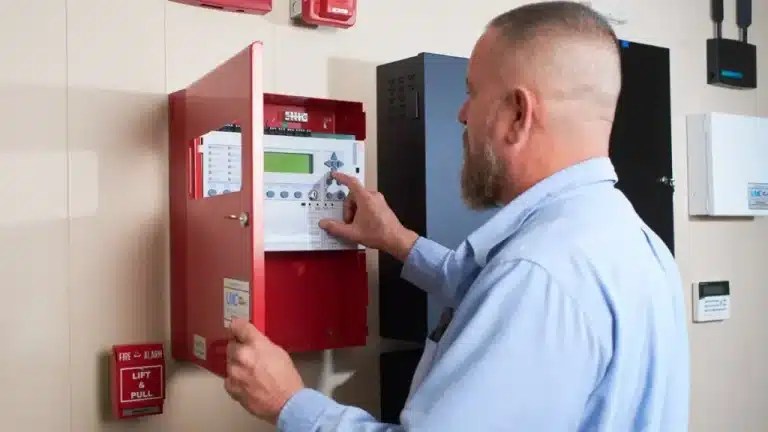A home is more than just walls and a roof — it’s where life happens, and where the safety of loved ones is most important. While many homeowners invest in locks, security cameras, and other measures to protect against intruders, fire is one of the most significant risks, often from inside the house. The simplest and most effective safeguard is a fire alarm system. Far from being just another device on the ceiling, a fire alarm can mean the difference between a minor incident and a devastating loss.
Why a Fire Alarm Is Essential
Fires can start unexpectedly and spread rapidly. Cooking mishaps, faulty wiring, candles, or even an unattended appliance are enough to spark a blaze. Smoke and flames can overtake a home in minutes without an early warning. A fire alarm provides that crucial first signal, alerting everyone inside to act quickly and get to safety.
For many families, the importance goes beyond the immediate danger. A functioning fire alarm saves lives and helps reduce property damage by ensuring emergency services are called immediately. Early detection is the foundation of fire protection.
How a Fire Alarm Works
A fire alarm system is made to detect heat, smoke, or sudden changes in the air. Modern systems are significantly more sophisticated than the simple smoke detectors of the past. They can differentiate between real smoke and innocuous cooking steam, which lessens the number of false alarms that annoy homeowners.
When triggered, the system produces a loud signal to warn occupants. Some alarms can send instant notifications to a mobile phone or connect directly to a monitoring service. This means the fire can be reported quickly, even when no one is at home, giving firefighters a better chance of limiting the damage.
Fire Alarms as Part of Home Improvement
Installing a fire alarm is not just about safety — it’s also an investment in the home’s value and resilience. Many building standards and insurance providers consider fire protection necessary, and homes with reliable fire alarms often benefit from lower risk assessments.
Beyond compliance, there’s peace of mind. Knowing that the home is always being monitored for smoke or fire hazards allows families to focus on enjoying daily life, rather than worrying about what might happen while they are asleep or away.
The Human Factor
Statistics around fire safety underline just how critical these systems are. Many fire-related deaths occur at night, when people are asleep and unable to react quickly. A fire alarm cuts through the silence, providing those vital seconds to make escape possible. For households with children, elderly residents, or anyone with reduced mobility, that early warning is critical.
Modern Advances in Fire Alarms
The most recent fire alarm models do more than sound a siren. Certain versions have interconnected systems, which means that all of the house’s alarms will sound simultaneously if one detector detects smoke. Others provide mobile connectivity, enabling homeowners to receive rapid alerts via an application. No matter where a fire begins, this integrated strategy guarantees that everyone in larger residences is informed right away.
These advancements are part of a larger trend in home safety: fire alarms are now integrated systems that complement other safety precautions, such as carbon monoxide detectors and home security equipment, rather than standalone devices.
Conclusion
Although every homeowner hopes a fire won’t occur, the only real defence is preparation. A fire alarm provides early detection, unambiguous warning, and frequent direct connections to emergency services. Families are safeguarded, damage is decreased, and the property gains long-term worth. In the end, investing in a dependable fire alarm system is one of the most important things anyone can do to make a house safer, smarter, and more robust.













